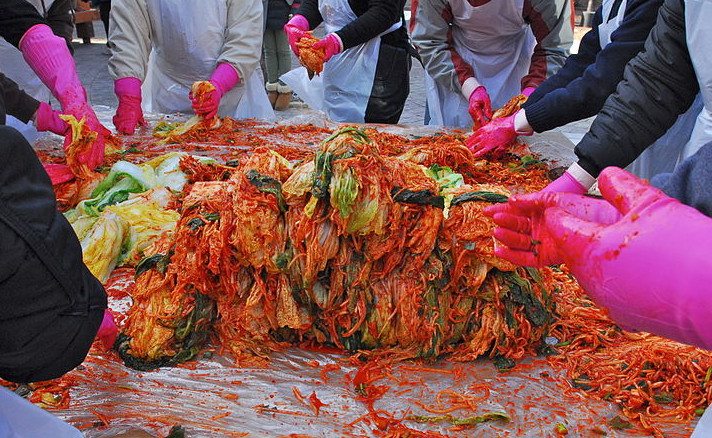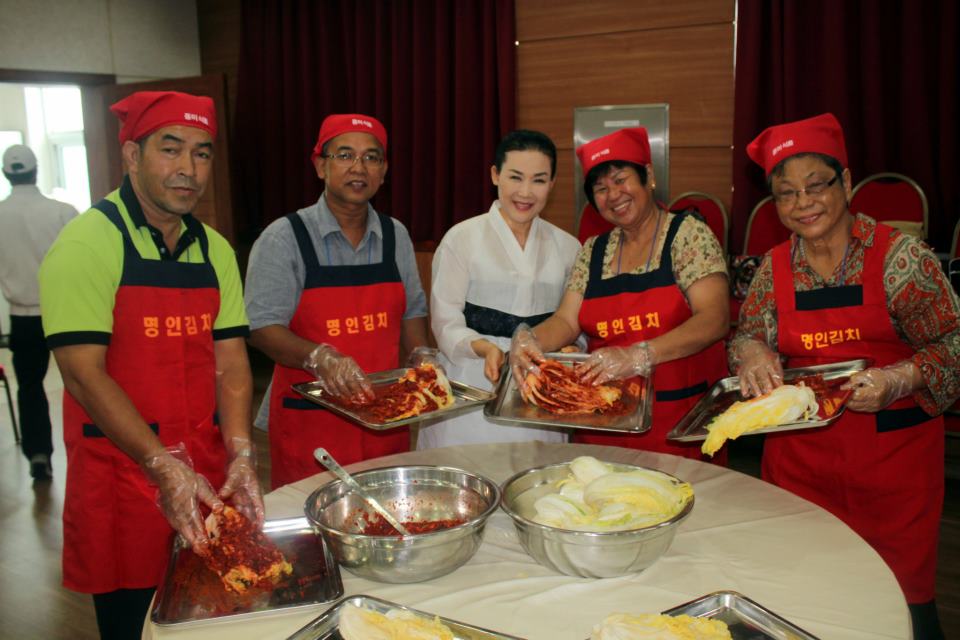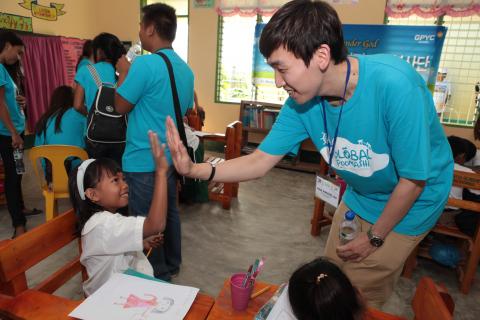
At the onset of winter, families and communities around Korea still practice kim-jang, or kimchee making. This yearly activity animates the virtue of “hong-ik-ingan” inherent in Korean culture. (Photo Credit: Victoria Choi)
Every autumn, when the leaves change from green to brilliant crimson and gold, and the winds begin to cool, families around the Korean peninsula begin the yearly tradition of kim-jang, or ‘the making and sharing of kimchi’.
From the coast to the midlands, from the countryside to the cities, families harvest and pickle nappa cabbage and make Korea’s most beloved dish, Kimchee.
Every family and region has their specific concoction of spicy pickle sauce. On the southern coasts, they use homemade fish sauce and locally caught mackerel. In the heartlands, they mix in seasonal vegetables, herbs and fruits.
And while there are plenty of store-bought varieties of kimchee available today, families continue to gather in this age-old tradition; not only in Korea but also in communities around the world.
During this season, the concept of poomashi, or ‘sharing the work together’, comes alive.
Children and grandchildren return home to help their parents in kim-jang. In local villages and even cities, neighbors make their rounds bringing their own rubber gloves and boots to neighbor’s kim-jang sessions.

The Global Peace Leadership Exchange hosted by the Global Peace Foundation in 2012 fostered international connections between global peacemakers. In this photo, Malaysian delegates experience “poomashi,” or sharing work together, during a kimchee making session.
The cold autumn air makes their breath visible, as they wash and salt the heads of cabbage, catching up with each other, laughing and crying together, and sharing in hot radish soup at the end of each day.
There is an unspoken understanding that together, they can make a mountain of work enjoyable.
Some mothers will pickle up to 300 heads of cabbage, enough for the entire year and always some to share.
This yearly ritual is for many families and communities a time to rebuild familial ties with each other. Today, even in the cities, families will still gather to make kimchee together. In small apartments, three generations will get together to make and share in their mother’s special, one-of-a-kind kimchee.

Global Youth Exchange, formerly called Global Poomashi, sends Korean youth abroad to serve developing regions.
This sense of extended family and community is something that has tied the Korean people together for centuries. Going out of the way to help each other, and knowing that somehow the good will be reciprocated, is a concept that is still alive and well in Korea today.
It can even be said to have sparked Korea’s economic miracle in the last century, and it continues on in the international relief efforts of KOICA. Recent Global Youth Exchange programs, previously named Global Poomashi, sends Korean exchange students abroad for community development projects.
Perhaps it is one manifestation of the principles of “Hong-ik Ingan”, or ‘to live for the benefit of humanity’, passed down through the millennia with the Korean people.
